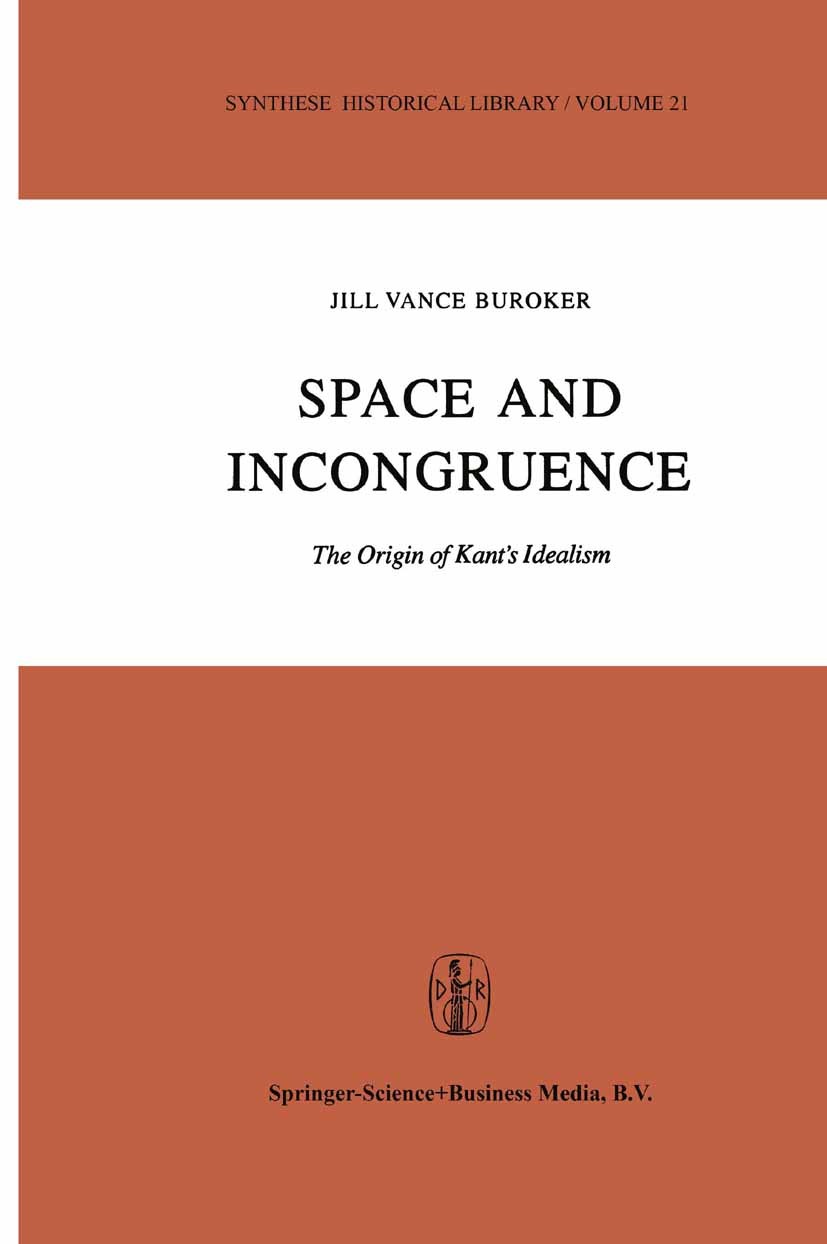| 书目名称 | Space and Incongruence |
| 副标题 | The Origin of Kant’s |
| 编辑 | Jill Vance Buroker |
| 视频video | http://file.papertrans.cn/874/873170/873170.mp4 |
| 丛书名称 | Synthese Historical Library |
| 图书封面 |  |
| 描述 | Kantian transcendental idealism is the thesis that fundamental aspects of experience are contributed by the perceiving subject rather than by the things experienced, and are not features of things as they exist independently of sensible perceivers. This is undoubtedly the most striking and at the same time the most puzzling of Kant‘s Critical views. It is striking because nothing could be less commonsensical than the beliefthat things as we perceive them have nothing in common with things as they are independently ofbeing per ceived. From a more technical point of viewthe doctrine is puzzling because Kant apparently does not support it very well. Beginning with Kant‘s con temporaries, critics have pointed out that among all the arguments for the theory in the CritiqueofPureReason, none entails the conclusion that things in themselves cannot be like objects of sense experience in any way. So, for example, although transcendental idealism is compatible with Kant‘s theory of synthetic a priori knowledge, there is nothing in the analysis of the syn thetic a priori ruling out the possibility that features contributed to experi ence by the perceiving subject correspond to characteris |
| 出版日期 | Book 1981 |
| 关键词 | Gottfried Wilhelm Leibniz; Immanuel Kant; idealism; metaphysics; nature; physics; sensibility; space |
| 版次 | 1 |
| doi | https://doi.org/10.1007/978-94-015-7660-4 |
| isbn_softcover | 978-90-481-8363-0 |
| isbn_ebook | 978-94-015-7660-4Series ISSN 0082-111X |
| issn_series | 0082-111X |
| copyright | Springer Science+Business Media Dordrecht 1981 |
 |Archiver|手机版|小黑屋|
派博传思国际
( 京公网安备110108008328)
GMT+8, 2026-2-8 20:32
|Archiver|手机版|小黑屋|
派博传思国际
( 京公网安备110108008328)
GMT+8, 2026-2-8 20:32


